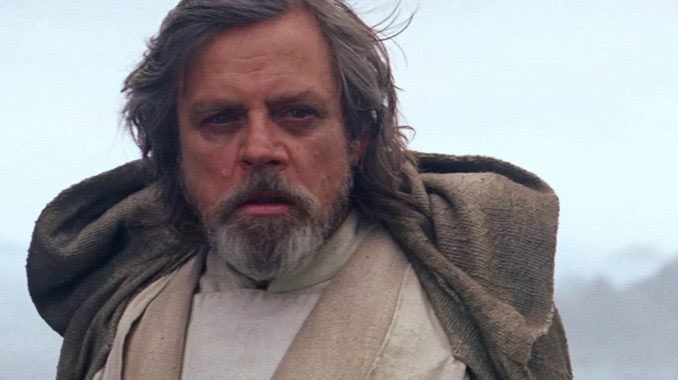
16 years ago today, the @teamcovenant website went live for the first time. Miraculously, a few brave people placed an order that day.
Here’s a major lesson (or two) I learned from each year building a company:
Here’s a major lesson (or two) I learned from each year building a company:

2007. Find a way to get started and don’t be afraid to make mistakes. You can change logos, domains, names, strategies, etc. later. Just get moving and start learning.
Here are early concepts for our logo, which we didn't even start working on until a year after we launched!
Here are early concepts for our logo, which we didn't even start working on until a year after we launched!

If I can start a company at 18-years old with $300, very little confidence, no experience, and no connections, I believe most people could too.
Even though I was terrified, I knew it was better to try and fail than regret not having tried for the rest of my life.
Even though I was terrified, I knew it was better to try and fail than regret not having tried for the rest of my life.

2008. Doing what you love (passion) is great, but it’s not enough. You need to believe in why you’re doing it (purpose).
If you mix passion with purpose, you’ll have the fuel to get through the toughest moments and uncomfortable situations - and there will be plenty of both.
If you mix passion with purpose, you’ll have the fuel to get through the toughest moments and uncomfortable situations - and there will be plenty of both.

After being introduced to card games through #PokemonTCG, I grew up playing a lot of the less popular card games.
Most local stores, where these games are often played and sold, never cared about the games we played because they weren't Magic the Gathering.
Most local stores, where these games are often played and sold, never cared about the games we played because they weren't Magic the Gathering.

A string of bad experiences in late 2006 with local and online retailers was the spark that turned my frustration with the status quo - no one caring about something I cared about deeply - into an unquenchable fire that would become Covenant. 

We posted our first YouTube video in 2008, and videos became a key part of our strategy. I was shy and terrified of public speaking. If I didn’t have passion and purpose, I wouldn't have had the courage to do the many difficult things on the journey - including being in videos. 

2009. Passion and purpose are important, but they pale in comparison to finding co-founders who share your passion and purpose.
I took the first steps to create Covenant, but without Jonathan, Robert, Steven, and Tim, Covenant wouldn't exist today or be half the company it is.
I took the first steps to create Covenant, but without Jonathan, Robert, Steven, and Tim, Covenant wouldn't exist today or be half the company it is.

One key decision was making them feel like owners… by making them owners. My dad thought I was crazy for making them shareholders - and maybe I was - but I could write a book about all the ways they’ve made Covenant what it is today. 



The road ahead would be long, difficult, and not particularly lucrative. So, it was only right to make sure that the people who were sacrificing to make our dreams come true were actually doing so for ‘our’ dreams, not just mine. 

2010. Be quick to act, but slow to spend.
Even though I was working on an MBA in finance at the time, I grew up poor and watched family members start a number of fledgling businesses. So, managing resources was not something that came naturally for me.
Even though I was working on an MBA in finance at the time, I grew up poor and watched family members start a number of fledgling businesses. So, managing resources was not something that came naturally for me.

In 2009, we hired our first full-time employee (Steven, co-founder and now Marketing Director). His contributions led to us having more cash than we immediately knew what to do with at that time.
Although, in hindsight one idea would have been to pay him a reasonable wage...
Although, in hindsight one idea would have been to pay him a reasonable wage...

Regardless, videos became more and more critical for us. So, we took a crew of 10 people to a major industry event that year (Gen Con) to create as much content as possible.
While the content we filmed seemed important at the time, it was a huge waste of critical resources.


While the content we filmed seemed important at the time, it was a huge waste of critical resources.



2011. Big things have small beginnings. Sometimes, failures turns into something significant. A great product is only truly great if it’s sustainable.
We launched a ‘custom maps’ subscription for the main game we supported at the time.
We launched a ‘custom maps’ subscription for the main game we supported at the time.

Each map was designed and tested by our team, physically printed, and even came with a short-story. Our community loved it!
Unfortunately, we were spending a significant amount of time on the project and barely breaking even. We ended the service after a year.
Unfortunately, we were spending a significant amount of time on the project and barely breaking even. We ended the service after a year.

We considered this effort a failure.
Later that year, we were making plans for our local store (1.0). We were looking for new games to support that might not have make sense with our online store, but could work locally.

Later that year, we were making plans for our local store (1.0). We were looking for new games to support that might not have make sense with our online store, but could work locally.


At Gen Con, we discovered non-collectible card games, also called Living Card Games (LCGs).
At the time, I said there was absolutely no way LCGs could make money online, but I knew there would be people locally who would love a card game experience on a budget.
At the time, I said there was absolutely no way LCGs could make money online, but I knew there would be people locally who would love a card game experience on a budget.

I was right about one of these and very wrong about the other.
LCGs (were supposed to) release products monthly. After emailing Robert (co-founder, now Operations Director) for the second month in a row about putting me down for the next release, a light bulb went off.
LCGs (were supposed to) release products monthly. After emailing Robert (co-founder, now Operations Director) for the second month in a row about putting me down for the next release, a light bulb went off.
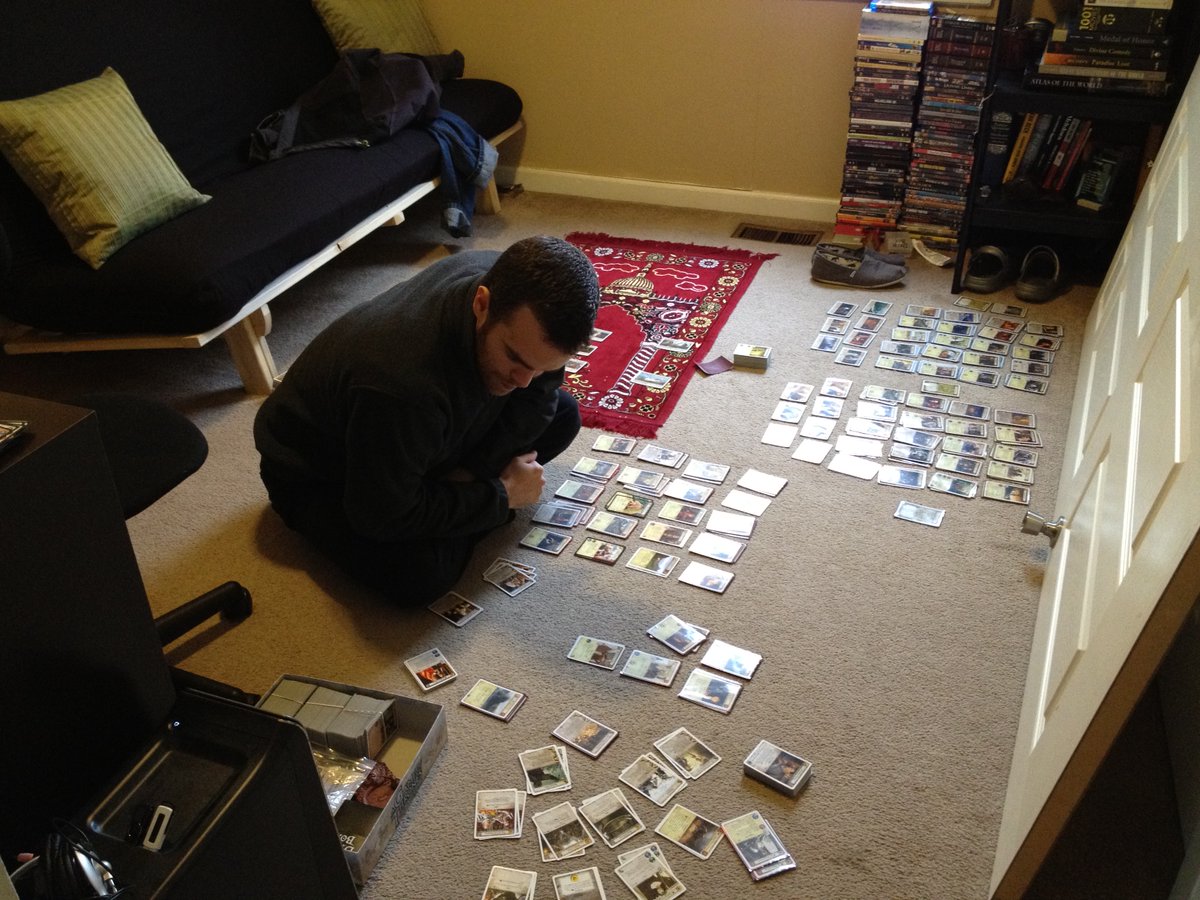
Surely, I wasn’t the only one who didn’t want to have to deal with hunting down a $15 pack every month.
Covenant Maps failed, but led to the idea for Covenant Subscriptions - which would become our most successful service and serve hundreds of thousands of releases to players.
Covenant Maps failed, but led to the idea for Covenant Subscriptions - which would become our most successful service and serve hundreds of thousands of releases to players.

2012. If someone’s not upset about what you’re doing, no one is going to love it either.
On March 17th, 2012, we opened Covenant Tulsa (1.0) - a local retail store that, quite honestly, didn’t care about selling products.
On March 17th, 2012, we opened Covenant Tulsa (1.0) - a local retail store that, quite honestly, didn’t care about selling products.

We had no retail shelves and almost no products on display.
Our thesis was that there are two kinds of players for the games we supported: those who already play a game and know exactly what they want, and those who are brand new and have no idea what they want.
Our thesis was that there are two kinds of players for the games we supported: those who already play a game and know exactly what they want, and those who are brand new and have no idea what they want.

We put all of our resources, limited as they were, into creating a place for people to play games, not just buy them.
We were met with a lot of criticism, including people getting angry at our staff or stomping out of the store when they found out we didn't sell Magic or 40k.
We were met with a lot of criticism, including people getting angry at our staff or stomping out of the store when they found out we didn't sell Magic or 40k.

Even with the criticism, our community grew and it was clear there were a lot of players who, like us, had been underserved by the retail environment their entire lives.
We still had to make it economically sustainable, but we knew we were on the right track.
We still had to make it economically sustainable, but we knew we were on the right track.

2013. Culture isn’t built by accident. Bad things can also have small beginnings.
As we continued to grow, we needed more working space. So, we rented an office upstairs in the same building as 1.0. Unfortunately, our inventory still needed to be downstairs for our store.
As we continued to grow, we needed more working space. So, we rented an office upstairs in the same building as 1.0. Unfortunately, our inventory still needed to be downstairs for our store.

This meant our Operations team (at that point, Robert) worked downstairs while everyone else was upstairs. We'd reap the harvest from these bad seeds for years, and it's still one of my biggest regrets. 

I know remote work is "in vogue" right now, but I fundamentally believe something special happens when you sit across the table to work (or play) with people, face to face.
Get your people together if and when possible. And read a lot of books on how to build culture.
Get your people together if and when possible. And read a lot of books on how to build culture.

2014. Not every “at bat” will be a home run, and you can’t just copy and paste success.
In 2013, we launched two very successful component lines: Data Tokens, compatible with Netrunner, and Squad Templates, compatible with X-Wing.

In 2013, we launched two very successful component lines: Data Tokens, compatible with Netrunner, and Squad Templates, compatible with X-Wing.


When a new LCG was coming out in 2014, we assumed by putting the same amount of work into a compatible token product for the game we’d see the same success we saw previously.
We ended up creating components using a method that was overly complicated and expensive.
We ended up creating components using a method that was overly complicated and expensive.

A combination of a price that was too high because of the cost to make them, a smaller audience for this game, and less effective community building/marketing from us meant we came up significantly short of revenue/profit projections from this product. 

2015. Your biggest moments of growth come at your greatest moments of failure. When life breaks you, it’s an opportunity to put yourself back together in a better, smarter, and stronger way.
This year for me, both personally and professionally, was absolutely devastating.
This year for me, both personally and professionally, was absolutely devastating.

In April, we closed Covenant Tulsa 1.0 and opened 2.0. The new space was a drastic improvement in basically every way.
In May, we were launching a new website that was years in the making. I left on vacation to Mexico with my wife’s family on an all-time high.


In May, we were launching a new website that was years in the making. I left on vacation to Mexico with my wife’s family on an all-time high.



While I was on vacation, I got an email from Steven that something was wrong. Something about the checkout on our website wasn’t working and revenue was down 50% overnight. 

During the trip, my wife would reveal a decade’s worth of grievances for the first time and that she was done with our relationship.
I took this pic of myself on a deep sea fishing trip the next day. I wanted to always be able to remember that even at rock bottom, I was okay.
I took this pic of myself on a deep sea fishing trip the next day. I wanted to always be able to remember that even at rock bottom, I was okay.

While my personal life was falling apart, the crisis at Covenant revealed a number of issues - primarily to my co-founders - that had been building over the years.
After my trip, they courageously decided to sit me down for a candid conversation about these issues.
After my trip, they courageously decided to sit me down for a candid conversation about these issues.

Ironically, it was my co-founders who were committed to fixing what was broken and finding a way forward. Their care and loyalty was a game-changer for this time in my life. With similar personal and professional issues, they helped me genuinely see how I was part of the problem. 

A lot of our issues were connected to our company being run like a family business. We worked together to implement an organizational structure, create core values, and introduce performance reviews based on those core values.
These would all be invaluable in the years to come.

These would all be invaluable in the years to come.


2016. When your approach is different, you'll find yourself betting against the crowd. Be ready for people to call you crazy or worse and when you’re right, they’ll get angry about it.
Before Gen Con 2016, a new collectible Star Wars card game was announced - Star Wars: Destiny.
Before Gen Con 2016, a new collectible Star Wars card game was announced - Star Wars: Destiny.

Our support of this game wasn't guaranteed. The announcement and the dice made the game feel a bit childish. We hadn’t supported a collectible card game in nearly a decade.
However, I’m a huge Star Wars fan and the publisher, FFG, was one of my favorites at the time.
However, I’m a huge Star Wars fan and the publisher, FFG, was one of my favorites at the time.

So, we gave the game a shot and filmed a demo video at Gen Con. The publisher also gave us a test copy to try on our own time.
On the 10-hour drive home from Gen Con, I looked through the cards and built decks as we debated whether or not we could support a collectible game.
On the 10-hour drive home from Gen Con, I looked through the cards and built decks as we debated whether or not we could support a collectible game.

I spent my recovery day off after getting back playing games with my housemates at the time. I was hooked.
The more we played and the more we learned about how they were approaching collectability, the more convinced we were that this game was going to be THE next big game.
The more we played and the more we learned about how they were approaching collectability, the more convinced we were that this game was going to be THE next big game.
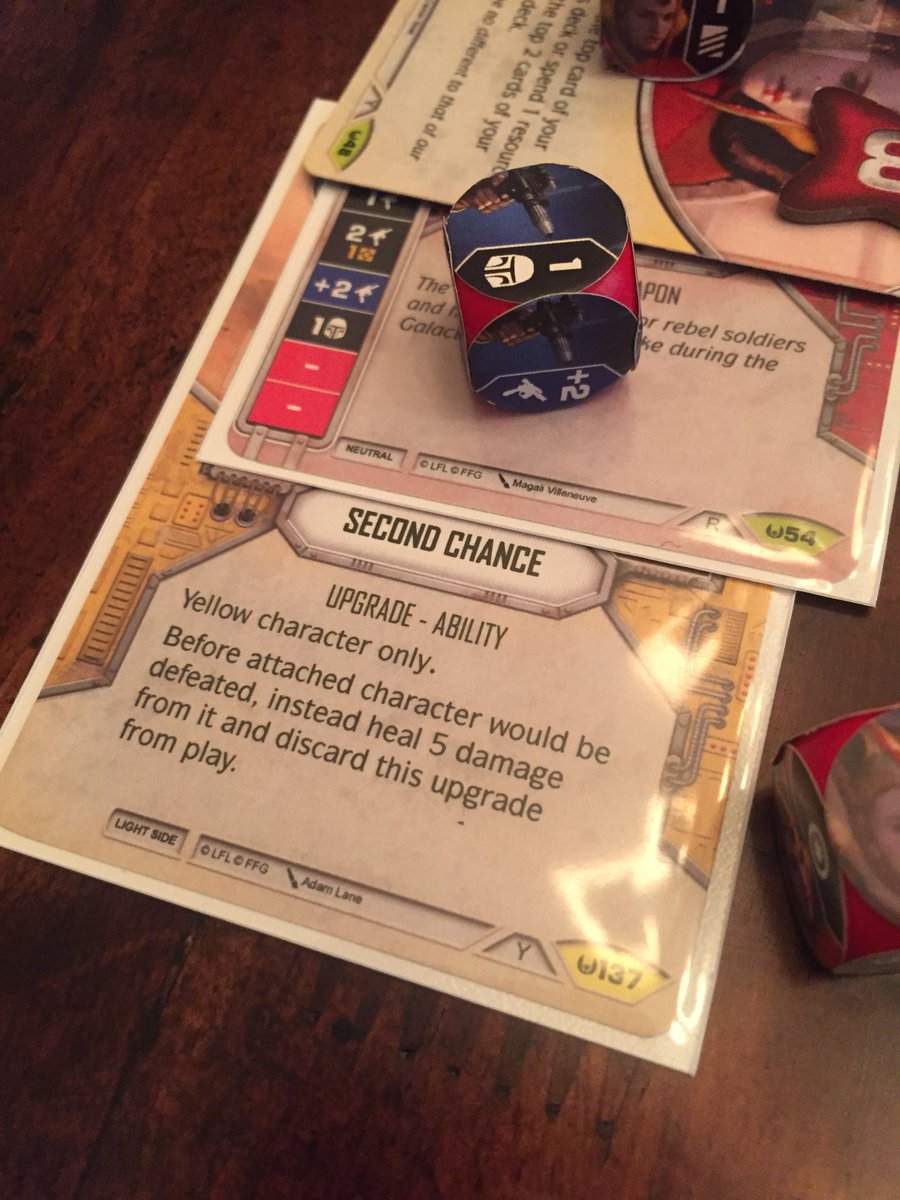
The public reaction to the game, especially by retailers, was quite the opposite. They said it would be “dead on arrival”.
Our entire company was built to support players who played games most retailers didn't care about, so this only made us more interested.
Our entire company was built to support players who played games most retailers didn't care about, so this only made us more interested.

I reached out to the publisher to offer our help showing the game to the world through our content. We committed to our most extensive content series to date, and with it placed our biggest order for a game ever to ensure we had product to sell if our content worked. 

For us, we were just stabilizing after the crisis of 2015. Our commitment was an 'all in' type moment.
Much later, I’d learn that at the time practically no distributor or retailer was pre-ordering the game - a very bad sign. We apparently ordered more than any distributor.
Much later, I’d learn that at the time practically no distributor or retailer was pre-ordering the game - a very bad sign. We apparently ordered more than any distributor.

As our content started, we were criticized for supporting a collectible game and people claimed we'd finally 'sold out'. With each piece of content though, players started to recognize what we did - this game was GREAT. 

The publisher sent out ‘pre-release’ kits for stores to host introductory events before the game came out. A couple of weeks before release, these events happened all over the world.
Once people got their hands on the game, demand went crazy.
Once people got their hands on the game, demand went crazy.

Views on our content kept climbing and before the release date arrived, we had pre-sold everything we ordered. So, we ordered more. Everything sold out pretty much everywhere on release weekend.
There were a lot of retailers trying to order product the week after release.
There were a lot of retailers trying to order product the week after release.

Our restock showed up. When they couldn’t get any more and we had it in stock, stores quickly started blaming us for the shortage in supply. Ironic, isn't it?
Destiny would be a huge success for us and is, to this day, one of my favorite games of all time.
Destiny would be a huge success for us and is, to this day, one of my favorite games of all time.
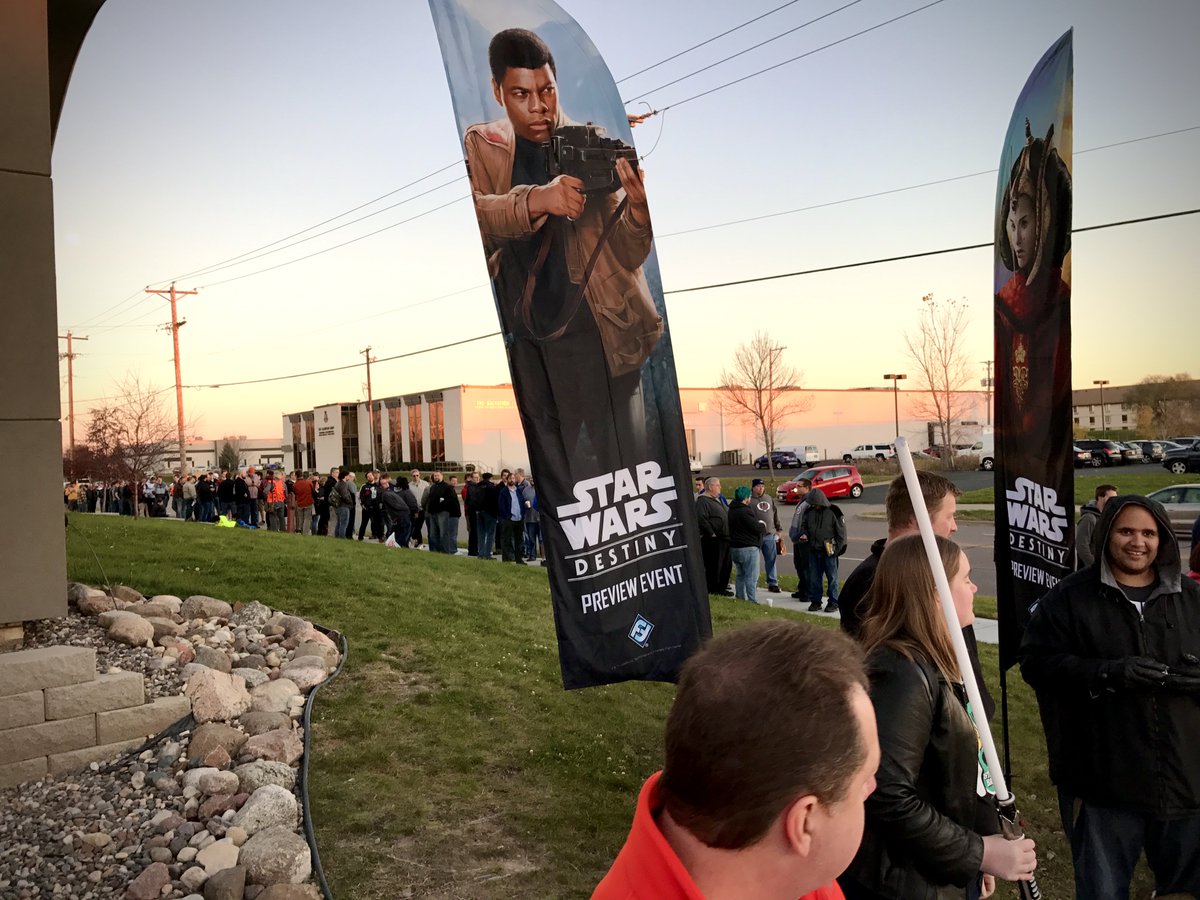
2017. Sometimes you’ve got to stop doing something people love. 80% of your work often creates only 20% of the results, and vice versa. Systems make you more efficient, but can also lead to wasting time. 

With the release of Netrunner and X-Wing in 2012, we created two video content formats.
Unboxing videos, where we’d review each card in a release, and Gameplay videos, where we’d edit high-level games with a hud (for showing cards, scores, etc.) and commentary.

Unboxing videos, where we’d review each card in a release, and Gameplay videos, where we’d edit high-level games with a hud (for showing cards, scores, etc.) and commentary.


Like the maps service, these took a ton of time and effort and players loved them. Unlike the maps, they were hugely successful at growing our community.
Unfortunately, as the number of games we supported grew, keeping up with all the releases and events became impossible.

Unfortunately, as the number of games we supported grew, keeping up with all the releases and events became impossible.


We had systematized this content, but over time, the effort increased and the upside decreased. We were putting in 80% effort for 20% (or less) of the results.
We debated cutting the videos for a long time, but we knew something had to change.
We debated cutting the videos for a long time, but we knew something had to change.

The Star Wars: Destiny content from the year before gave us an idea for a possible sustainable path forward. We called this content the ‘learning series’, an evergreen series of content for a game that was super helpful for anyone interested in the game. 

This pivot let us create content whenever a new game was releasing, launch relevant subscription services and component offerings, and not set an expectation that we'd create unboxing and gameplay videos forever. 

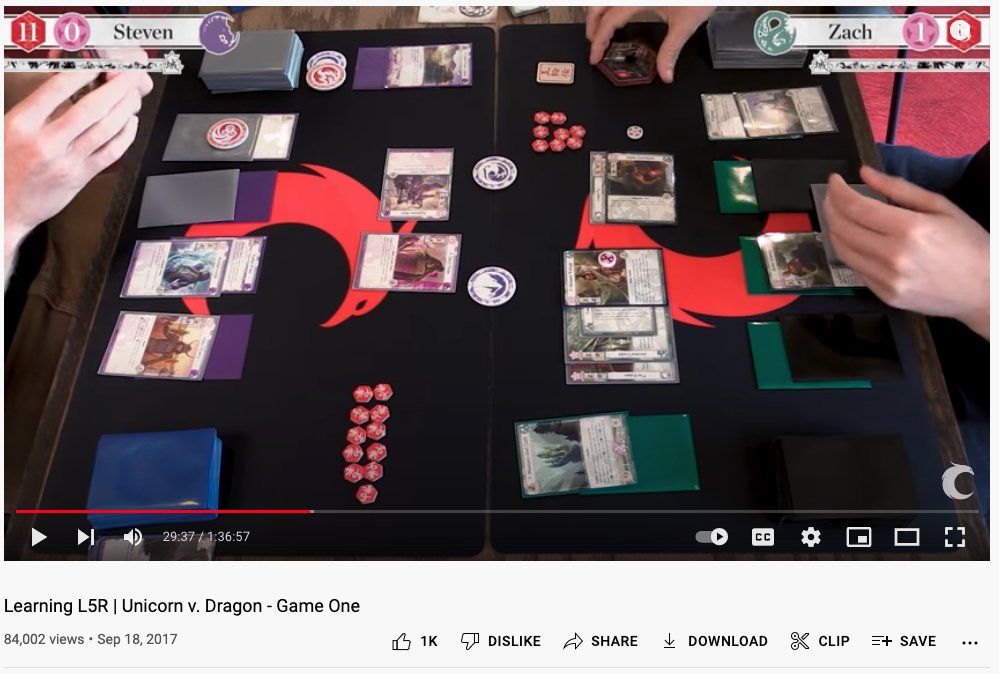

We got much more selective about our content and focused on creating the most helpful/meaningful content we could.
We even went back and created learning series for all the active games we had at the time, and they were extremely successful and well-received by the community.
We even went back and created learning series for all the active games we had at the time, and they were extremely successful and well-received by the community.

2018. Keeping learning. One size does not fit all. Just because an idea or system from a video or book makes sense, it doesn’t mean it’ll work for you or your company.
Even though we'd been doing this for over a decade, you can always learn and improve.
Even though we'd been doing this for over a decade, you can always learn and improve.

I was reading a lot of books on leadership, organizations, and management at the time. One notable book was Measure What Matters. The OKR (objectives and key results) system from the book made a lot of sense, so we worked to implement it. 
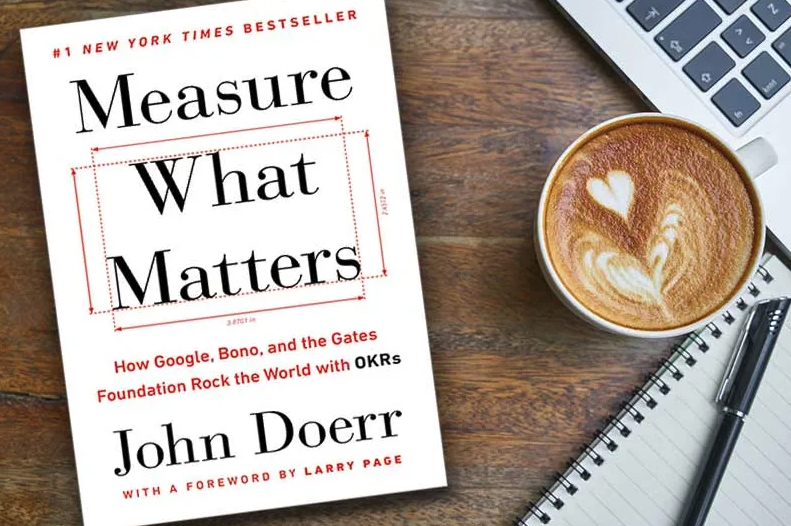
There were elements of the concept that were and still are very helpful, but our first attempt led us to being distracted by a complicated process and a lot of uninspiring metrics that really didn’t matter. It was odd and uncomfortable to attempt to implement. 

In the middle of the year, we started over and refocused our objectives around more meaningful metrics. For the first time, we had clear and measurable metrics we were working to improve. And we did! 

There was a lot about this process that is built for larger companies, so we had to refine and customize it for our own situation. This refinement process is still ongoing to this day. We made a few honest attempts, kept what worked, and threw out the rest. 

In business and in life, no matter how hard you fail you've got to keep learning and trying.
This was also the year I married my beautiful, incredibly supportive wife. She's was another game-changer for me.
This was also the year I married my beautiful, incredibly supportive wife. She's was another game-changer for me.

2019. If you don’t clearly define who you are and who you’re for, you’ll waste a lot of time having similar conversations and making similar decisions - over and over. 

While the organizational improvements over the years were starting to pay dividends, we kept coming back around to similar decisions, conversations, and disagreements. It would take my co-founders, again, asking tough questions for me to recognize this. 

We hosted series of events in 2019 called 'Covenant Masters' for our biggest game at the time, Star Wars: Destiny. The series started out as a very high-level, competitive event series with prizes that rewarded winning. 





By the end of the series (which lasted about a year), we had pivoted it into a laid back, casual gathering of people focused on maximizing connection and enjoyment instead of winning. 

While the willingness to change and pivot once we recognized something was off about the series was good, it was a clear sign that there was not a clear understanding across our team about who we are or who our products and services are for. 

2020. Clear goals and a sense of urgency creates an environment where the remarkable becomes possible.
We were in Reno at a trade show when the pandemic started to get very real in the US. We barely got home before airlines started cancelling flights.
We were in Reno at a trade show when the pandemic started to get very real in the US. We barely got home before airlines started cancelling flights.

When we got back, we made the decision to temporarily close our local store. As we were discussing the pandemic at our office, I remember distinctly saying as long as products keep coming out, we’ll be fine. 

On Friday of that week, one of our primary publisher partners at the time announced they’d stop releasing products while retailers were closed. Suddenly, we were not fine.
I woke up early the next day and started trying to figure out what was next.
I woke up early the next day and started trying to figure out what was next.

I sent an email to our team later that day that outlined our new priorities heading into the pandemic. I explained exactly where we were, what that meant for everyone specifically, and our plan to achieve our goals. 

The focus and clarity created by the pandemic was unreal. Our team got moving and the outcomes from their hard work in 2020 are still difficult for me to believe.
We started streaming five days a week, to offer some normalcy and connection to our community stuck at home.
We started streaming five days a week, to offer some normalcy and connection to our community stuck at home.
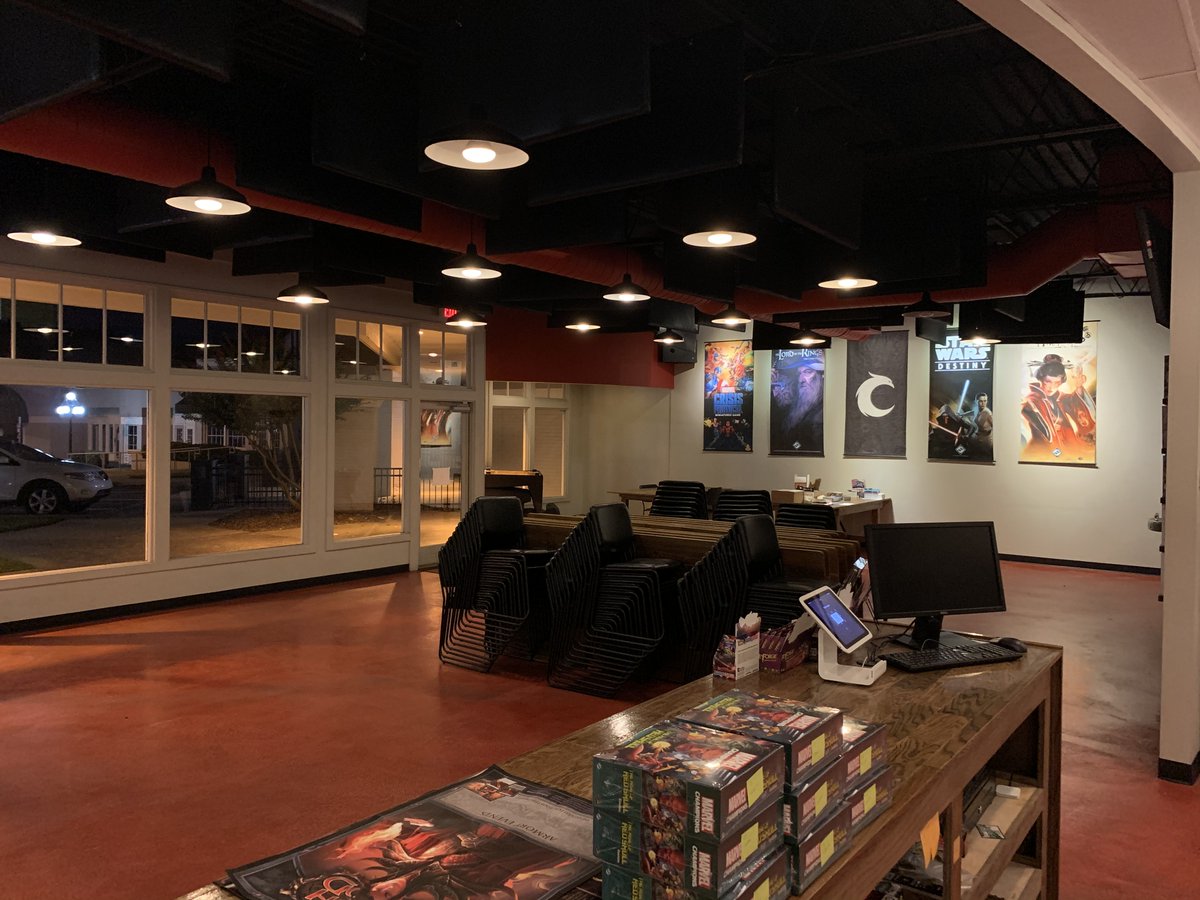
We also started looking for publishers who could use our support in a very uncertain time. We found some remarkable new partners, including @fabtcg and #Skytear. #FABTCG 



We also found new ways to work with previous partners, working with @PlaidHatGames to bring #AshesReborn back to life through our PDP (Player Driven Production) system. 

The outpouring of support, directly through purchases, and the gratitude we received, like this note, from our community was unbelievable. 

2021. Data is a measuring stick, not a compass.
Implementing OKRs led to us being very measured and objective driven. The pandemic threw a lot of that out the window.
Implementing OKRs led to us being very measured and objective driven. The pandemic threw a lot of that out the window.

Our decision to start streaming five days a week was not data driven and not particularly logical. We had no idea how it was going to be economical for us, but we knew it was the most meaningful thing we could do in that moment. 

In late 2021, we purchased land and began working with architects on the concept for our new space.
As we entered 2022, we were focused on launching the 3.0 version of our local store.
As we entered 2022, we were focused on launching the 3.0 version of our local store.

Just as the pandemic started to wane, making progress on 3.0 became more and more difficult. The combination of starting to lose the clarity of purpose we discovered from the pandemic and our primary objective, launching 3.0, becoming more challenging created a sense of stasis. 

Too late, I recognized that the objective of 'launching 3.0' wasn't great, because it wasn't measurable or actionable. Most people on the team couldn't actively contribute to the objective or understand how their work contributed towards it. 
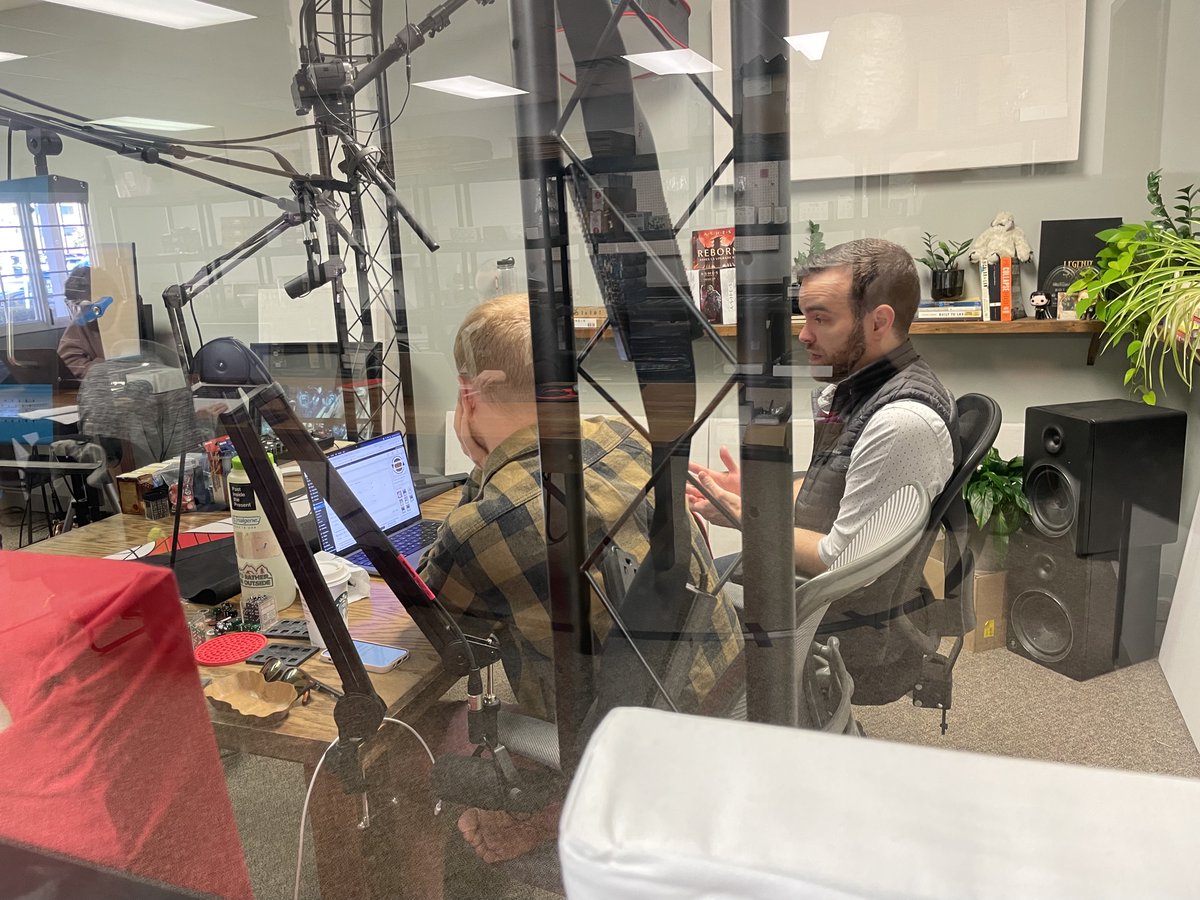
As the year went on, it became painfully obvious that I needed to clearly define success in a measurable way. While data isn't a compass, it is a very useful measuring stick for success and progress. This difference is critical. 

It's easy to focus on the wrong data, like the vanity metrics or view or subscribers count. However, giving your team a clear target that is measurable is one of the simpler and more profound lessons I've learned. The clarity is unreal. 

Well, this thread got out of control! I thought it would be 16~ tweets, but I guess I had a lot to say. If you made it this far, I hope you have a remarkable 2023 and that this was helpful. Massive thanks to our players and partners, and my team and wife for, well, everything. 

Noticing the autocorrect issues and misspellings as people like tweets. 💀
Appreciate all the love and comments on the thread though. ❤️
Appreciate all the love and comments on the thread though. ❤️
• • •
Missing some Tweet in this thread? You can try to
force a refresh




